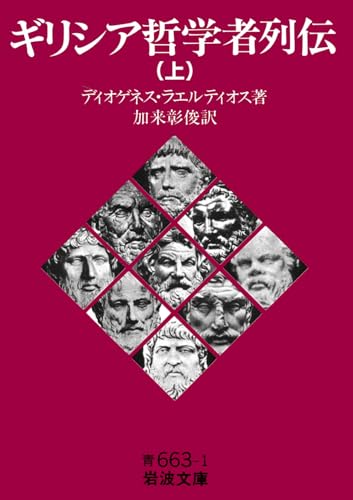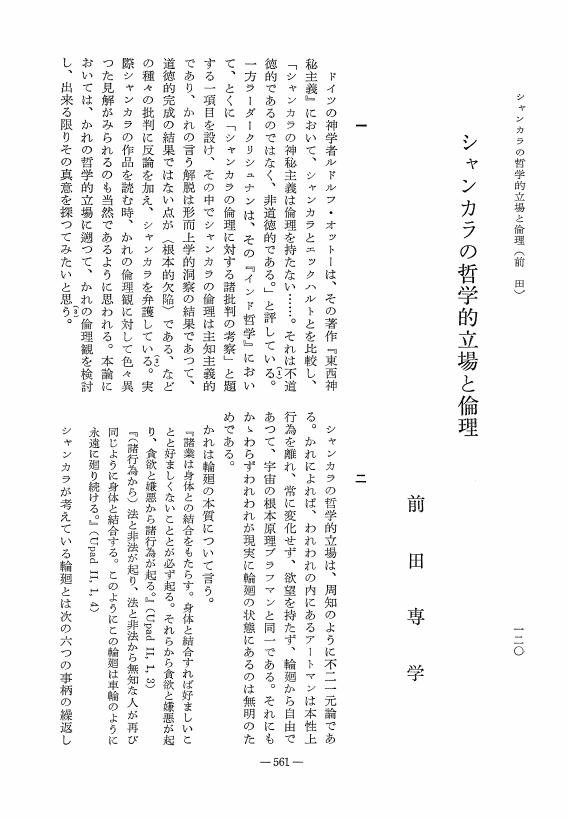1 0 0 0 IR 「賢慮」(フロネーシス)について : アリストテレスにおける知識と行為の一側面
- 著者
- 荻野 弘之
- 出版者
- 上智大学哲学科
- 雑誌
- 哲学科紀要 (ISSN:0286925X)
- 巻号頁・発行日
- no.39, pp.1-19, 2013
1 0 0 0 OA 気候の正義―政策の背後にある価値理論―
- 著者
- 宇佐美 誠
- 出版者
- 日本公共政策学会
- 雑誌
- 公共政策研究 (ISSN:21865868)
- 巻号頁・発行日
- vol.13, pp.7-19, 2013-12-20 (Released:2019-06-08)
- 参考文献数
- 23
わが国では,公共政策に内在する価値に関する規範的研究が,最近約20年間に一部の研究者によって精力的に推進されてきた。しかし,大半の政策研究者や政策実務家の間では,価値研究の重要性がいまだ広く認識されていないと思われる。こうした現状に一石を投じるべく,本稿は具体的な政策問題を取り上げた上で,現行政策や代替政策案の十全な評価のためには,これらの背後にある価値理論の検討が不可欠であると示すことを試みる。政策問題としては,政治哲学・道徳哲学で近時急速に研究が進展しつつある気候の正義という新たな研究主題群を取り上げ,なかでも地球規模での二酸化炭素排出権の分配問題に焦点を合わせる。初めに,本稿の主題を設定した上で,気候の正義の基本構図を概観する(1.)。次に,二酸化炭素排出削減の国際的政策の根幹をなす過去基準説(2.)と,主要な代替政策案である平等排出説(3.)について,その各々を正当化する価値理論に対して批判的検討を加える。この検討を通じて,両説がそれぞれ種々の難点を抱えることが明らかとなろう。こうした否定的知見を踏まえて,別の政策案である基底的ニーズ説の価値理論を発展させる(4.)。最後に,政策・政策案を評価するためには,これらの背後にある価値理論の検討が不可欠だと指摘する(5.)。
1 0 0 0 OA プレスナーの哲学的人間学における位置性の理論 (5)
- 著者
- 奥谷 浩一
- 出版者
- 札幌学院大学人文学会
- 雑誌
- 札幌学院大学人文学会紀要 = Journal of the Society of Humanities (ISSN:09163166)
- 巻号頁・発行日
- no.73, pp.21-50, 2003-03
1 0 0 0 西田先生と私:運命的緊張の永続
- 著者
- 今道 友信
- 出版者
- 西田哲学会
- 雑誌
- 西田哲学会年報 (ISSN:21881995)
- 巻号頁・発行日
- vol.8, pp.20-30, 2011
- 著者
- 吉永 進一
- 出版者
- 「宗教と社会」学会
- 雑誌
- 宗教と社会 (ISSN:13424726)
- 巻号頁・発行日
- no.12, pp.235-238, 2006-06-03
- 著者
- 中村 了昭
- 出版者
- 鹿児島国際大学
- 雑誌
- 鹿兒島経大論集 (ISSN:02880741)
- 巻号頁・発行日
- vol.12, no.3, pp.四一一-四三一, 1971-11-30
1 0 0 0 IR <研究余話>微笑の哲学
- 著者
- リーゼンフーバー K.
- 出版者
- 上智大学
- 雑誌
- ソフィア : 西洋文化ならびに東西文化交流の研究 (ISSN:04896432)
- 巻号頁・発行日
- vol.25, no.4, pp.184-185, 1976-12-30
1 0 0 0 IR カントの理念論の歴史的背景 ― 近代哲学におけるイデア論受容の一断面 ―
- 著者
- 宮村 悠介
- 出版者
- 愛知教育大学
- 雑誌
- 愛知教育大学研究報告. 人文・社会科学編 (ISSN:18845177)
- 巻号頁・発行日
- no.65, pp.101-109, 2016-03-01
1 0 0 0 IR 福祉における人間の主体性の問題
- 著者
- 野口 栄子 EIKO NOGUCHI
- 出版者
- 京都府立大学学術布告委員会
- 雑誌
- 京都府立大学学術報告 理学・生活科学・福祉学 (ISSN:0075739X)
- 巻号頁・発行日
- no.19, pp.77-81, 1968-10
福祉は現代においてもつとも人間性と密接な関連を有する観念といえるがそれは必ずしも明確な規定をもつていない。ここでは福祉を人間の主体性との関係において把握しようとする。自発的個性的な主体は, 現代においては実存的な相互連帯性の観点から受けとりなおされ, 再構成されなければならない。そのさい実存哲学がめさしている個人から社会への考方をとりいれつつ新しい見方が成立することが要請される。それは各主体が同一次元にあり, 共通の基盤から相補うもので, そこに福祉的人間の根拠があると考えられる。
1 0 0 0 OA 新体操の採点規則に関する哲学的研究 : 運動特性および競技性と採点規則との適合性を中心に
- 著者
- 村田 由香里
- 出版者
- 日本体育大学
- 雑誌
- 日本体育大学紀要 (ISSN:02850613)
- 巻号頁・発行日
- vol.41, no.1, pp.13-24, 2011-09-30
- 著者
- 吉田 健彦
- 出版者
- 大阪府立大学 環境哲学・人間学研究所 現代人間学・人間存在論研究部会
- 雑誌
- 現代人間学・人間存在論研究 (ISSN:24239216)
- 巻号頁・発行日
- vol.1, no.1, pp.159-204, 2016-03-31
1 0 0 0 OA 『老人と海』の環境思想
- 著者
- 渡久山 幸功
- 出版者
- 沖縄大学人文学部
- 雑誌
- 沖縄大学人文学部紀要 = Journal of Humanities and Social Sciences (ISSN:13458523)
- 巻号頁・発行日
- no.14, pp.1-16, 2012-03-10
本稿では、Ernest Hemingway(アーネスト・ヘミングウェイ)の中編小説 The Old Man and the Sea(『老人と海』1952年出版)をエコクリティシズム理論を援用して分析した。エコクリティシズム批評の重要な概念「センス・オブ・プレイス」や環境破壊の視座などが本作品に描かれていることを証明し、人間と自然(動物)の一体化・融合あるいは両者の関係の二項対立的な固定観念を解消することを信条とする老人サンティアゴの漁師としてのカリブ海特有の海洋生物・天候の知識が、彼の環境意識・哲学のバックボーンとなっていると考察した。海洋自然の「厳しさ」は、サンティアゴによって「自然の美しさ」及び「自然の摂理」として認識される。それは、小説の重要なメッセージとして提示され、環境文学の特徴である環境への意識を読者に喚起させることを促し、環境や自然に対する従来の価値観の転換を読者に希求する意図がある「環境文学テキスト」であると指摘した。This paper explores an environmental dimension of Hemingway's novella, The Old Man and the Sea (1952). Despite his reputation as a hunter/fisherman, there is no doubt that Hemingway was environmentally conscious as a nature writer as several of his works clearly suggest. The Old Man and the Sea is the best example among his nature-conscious texts. In perusing aspects of the marine environment and Santiago's personal philosophy of fishing for sustenance in the novella, I argue that the novel belongs to environmental literature in the American literary tradition, especially that of the American eco poet, Gary Snyder.
1 0 0 0 IR 『老人と海』の環境思想
- 著者
- 渡久山 幸功
- 出版者
- 沖縄大学人文学部
- 雑誌
- 沖縄大学人文学部紀要 = Journal of Humanities and Social Sciences (ISSN:13458523)
- 巻号頁・発行日
- no.14, pp.1-16, 2012-03-10
本稿では、Ernest Hemingway(アーネスト・ヘミングウェイ)の中編小説 The Old Man and the Sea(『老人と海』1952年出版)をエコクリティシズム理論を援用して分析した。エコクリティシズム批評の重要な概念「センス・オブ・プレイス」や環境破壊の視座などが本作品に描かれていることを証明し、人間と自然(動物)の一体化・融合あるいは両者の関係の二項対立的な固定観念を解消することを信条とする老人サンティアゴの漁師としてのカリブ海特有の海洋生物・天候の知識が、彼の環境意識・哲学のバックボーンとなっていると考察した。海洋自然の「厳しさ」は、サンティアゴによって「自然の美しさ」及び「自然の摂理」として認識される。それは、小説の重要なメッセージとして提示され、環境文学の特徴である環境への意識を読者に喚起させることを促し、環境や自然に対する従来の価値観の転換を読者に希求する意図がある「環境文学テキスト」であると指摘した。This paper explores an environmental dimension of Hemingway's novella, The Old Man and the Sea (1952). Despite his reputation as a hunter/fisherman, there is no doubt that Hemingway was environmentally conscious as a nature writer as several of his works clearly suggest. The Old Man and the Sea is the best example among his nature-conscious texts. In perusing aspects of the marine environment and Santiago's personal philosophy of fishing for sustenance in the novella, I argue that the novel belongs to environmental literature in the American literary tradition, especially that of the American eco poet, Gary Snyder.
1 0 0 0 ギリシア哲学者列伝
- 著者
- ディオゲネス・ラエルティオス著 加来彰俊訳
- 出版者
- 岩波書店
- 巻号頁・発行日
- 1984
1 0 0 0 OA 死のポルノグラフィー化と教育
- 著者
- 清多 英羽
- 出版者
- 東北教育哲学教育史学会
- 雑誌
- 教育思想 (ISSN:03860663)
- 巻号頁・発行日
- no.41, pp.17-32, 2014-03-31
1 0 0 0 近代内モンゴルにおける伝統医学の史的変容
- 著者
- 財吉拉胡
- 出版者
- 日本医学哲学・倫理学会
- 雑誌
- 医学哲学 医学倫理 (ISSN:02896427)
- 巻号頁・発行日
- vol.32, pp.43-52, 2014
Traditional Mongolian medicine is a system that assimilates both the theory and practice of Tibetan medicine, which entered into Mongolian society along with the spread of Tibetan Buddhism over the last several centuries. Traditional medicine in Inner Mongolia was then forcibly modernized when the Japanese colonial medical enterprise developed in Manchuria and Inner Mongolia during the first half of the 20th century. Moreover, after the establishment of People's Republic of China, western modern medicine was popularized throughout China, including Inner Mongolia. Meanwhile, traditional Chinese medicine too became widespread into the Mongolian-settled areas, as ethnic Han Chinese people settled in Inner Mongolia. Mongolian medicine was then admitted into the official professional medical sector by the government, alongside Chinese medicine. Subsequently, the government established institutions in the higher educational system for traditional Mongolian medicine and set up traditional medical hospitals. In recent decades, however, with the spread of globalization, this medicine has lost its main position in the medical order of Mongolian society and gradually been transformed into an ethnically sustainable form of alternative medicine. For traditional Mongolian medicine to sustain itself alongside other types of practice will involve continuing modernization to satisfy the needs of local consumers.
1 0 0 0 OA シャンカラの哲学的立場と倫理
- 著者
- 前田 専学
- 出版者
- Japanese Association of Indian and Buddhist Studies
- 雑誌
- 印度學佛教學研究 (ISSN:00194344)
- 巻号頁・発行日
- vol.18, no.2, pp.561-567, 1970-03-31 (Released:2010-03-09)
1 0 0 0 IR アリストテレス『動物発生論』の現代生物学・科学哲学的検討(1)第1巻第1章~第16章
- 著者
- 鈴木 大地
- 出版者
- 筑波大学大学院人文社会科学研究科古典古代学研究室
- 雑誌
- 古典古代学 (ISSN:18837352)
- 巻号頁・発行日
- no.6, pp.1-23, 2013
1 0 0 0 IR 『順正理論』における引果と取果
- 著者
- 一色 大悟
- 出版者
- 東京大学大学院人文社会系研究科・文学部インド哲学仏教学研究室
- 雑誌
- インド哲学仏教学研究 (ISSN:09197907)
- 巻号頁・発行日
- no.19, pp.73-89, 2012-03
Sarvāstivādins assert all factors (dharma) exist in all times. In their ontology, the way factors pass through the present time seems problematic if they "exist" in the three times : future, present, and past. To answer this problem, the Abhidharma scholar Vasumitra defined the present time as the time when factors have their activities (kāritra). Although his theory was accepted by Sarvāstivādins in general, it was still unclear what he meant by the word "activity". Therefore, another Abhidharma scholar, Saṃghabhadra, the author of *Nyāyānusāriṇī, redefined it "the power to project its own effect (*phalākṣepaśakti)" that all conditioned (saṃskṛta) factors must have in the present. Modern scholars such as G. Sasaki explained *phalākṣepa as phalapratigraha, an ability that a conditioned factor fixes itself as a cause of its own effect. Contrary to this explanation, T. Fukuda reasoned that not every phalapratigraha is *phalākṣepa, and concluded that *phalākṣepa corresponds only to those phalapratigraha affecting the effect that arises after its cause arose ("*phalākṣepa≠phalapratigraha theory"). The present article reconsiders Fukuda's hypothesis. By this reconsideration the article clarifies that his understanding unconsciously presupposes a few notions Saṃghabhadra does not accept. From this discussion, it is concluded that every phalapratigraha is *phalākṣepa which Saṃghabhadra regarded as deciding the present.
1 0 0 0 『純粋理性批判』における感覚と対象
- 著者
- 岩井 拓朗
- 出版者
- 東京大学大学院人文社会系研究科
- 雑誌
- 東京大学大学院人文社会系研究科・文学部哲学研究室論集 (ISSN:13453637)
- 巻号頁・発行日
- no.32, pp.160-173, 2013


